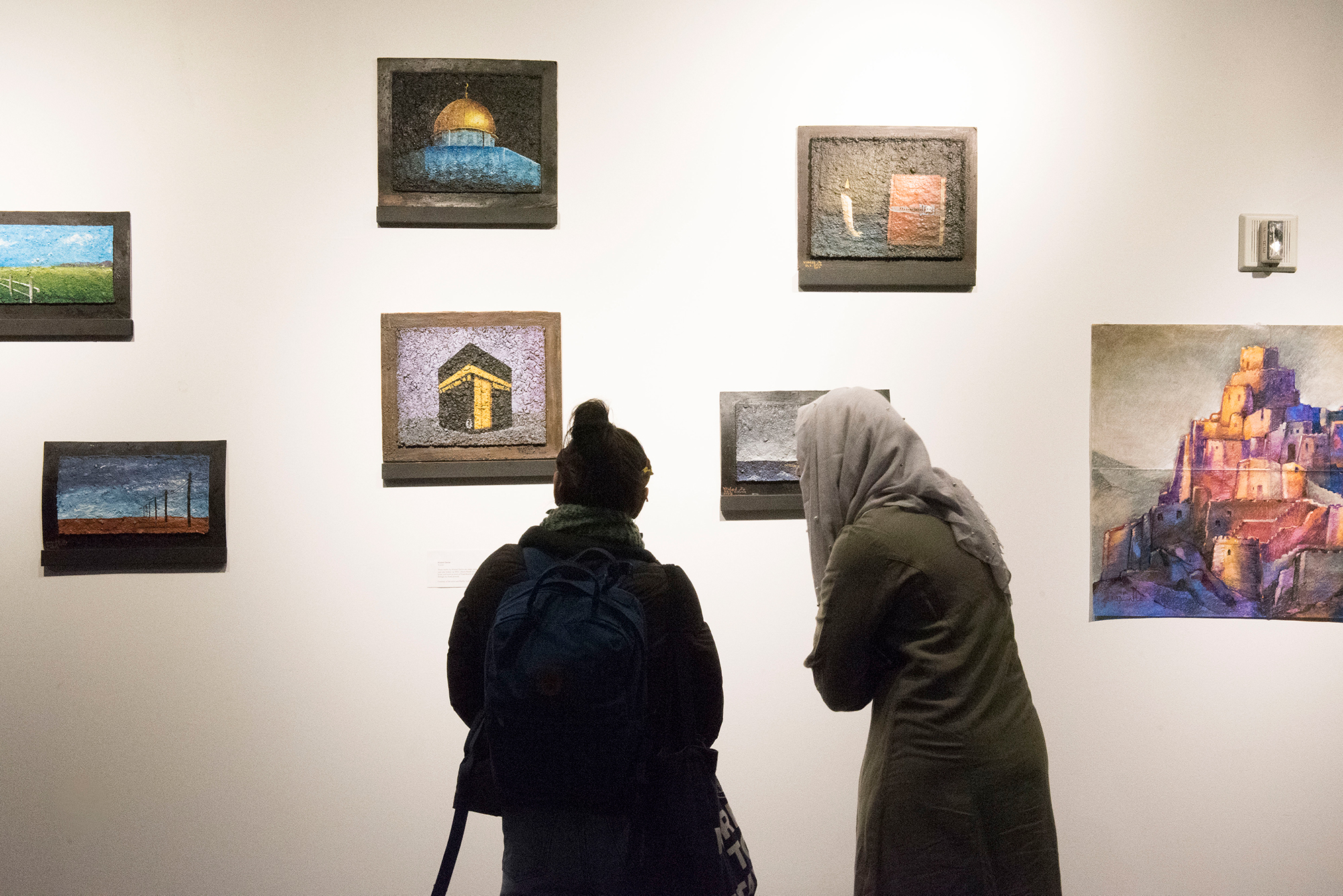

Opening Reception – Guantánamo [Un]Censored: Art from Inside the Prison
February 19, 2020 @ 6:00 pm - 8:00 pm
| FreeMarking the 18th anniversary of the opening of Guantánamo Bay prison, a new art installation features works created by men incarcerated without charge or fair process at the infamous facility.
The exhibit showcases artworks — the majority of which have never before been displayed — of eleven current and former Guantánamo prisoners, and includes a range of artistic styles and mediums. From acrylic landscapes on canvas to model ships made from scavenged materials such as plastic bottle caps and threads from prayer rugs, Guantánamo [Un]Censored celebrates the creativity of the artists and their resilience. Regarding his artwork, Moath al-Alwi, a Yemeni national and client of CUNY Law School’s Immigrant and Non-Citizen Rights Clinic (INRC), said “Despite being in prison, I try as much as I can to get my soul out of prison. I live a different life when I am making art.”
Guantánamo Bay has become a symbol of injustice, abuse, and flagrant disregard for the rule of law. Since the prison camp opened in 2002, 780 men have been unlawfully imprisoned. Many were subjected to torture and other brutal treatment. Today, 40 men remain, nearly all held without charge or trial. While some have already been cleared for release by the U.S. military and national security agencies, they continue to languish in prison.
Special thanks to the artists at Guantánamo for sharing their works — and to their lawyers who provide hope.
Featured Artists: Mansoor Adayfi, Moath al-Alwi, Djamel Ameziane, Mohammed al-Ansi, Ghaleb al-Bihani, Towfiq al-Bihani, Assadulah Haroon Gul, Khalid Qasim, Sabry Mohammed al-Qurashi, Ahmed Badr Rabbani, Abdulmalik al-Rahabi, Mohamedou Salahi
The Sorensen Center’s innovative Justice Through Art initiative brings new perspectives and depth to legal challenges.
CUNY School of Law’s Immigrant & Non-Citizen Rights Clinic (INRC) is unparalleled among the nation’s law clinics in its commitment to the defense of people incarcerated at Guantánamo Bay. Since 2009, INRC students and faculty have represented seven Guantánamo prisoners at all levels of the U.S. federal judiciary, before the military commissions, and in international bodies. Their work has resulted in the release of four clients from Guantánamo so far.
The Center for Constitutional Rights (CCR) works with communities under threat to fight for justice and liberation through litigation, advocacy, and strategic communications. Since the Guantánamo Bay prison opened in 2002, CCR has been at the forefront of the legal battle against indefinite detention and torture at Guantánamo, representing many current and former detainees. CCR organized a network of hundreds of lawyers to represent the detainees and won landmark Supreme Court cases that established U.S. court jurisdiction over the prison and affirmed detainees’ right to habeas corpus review.

